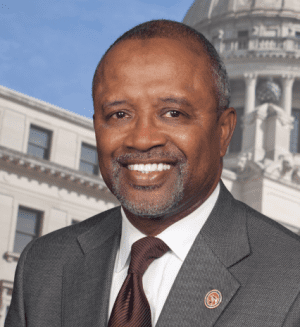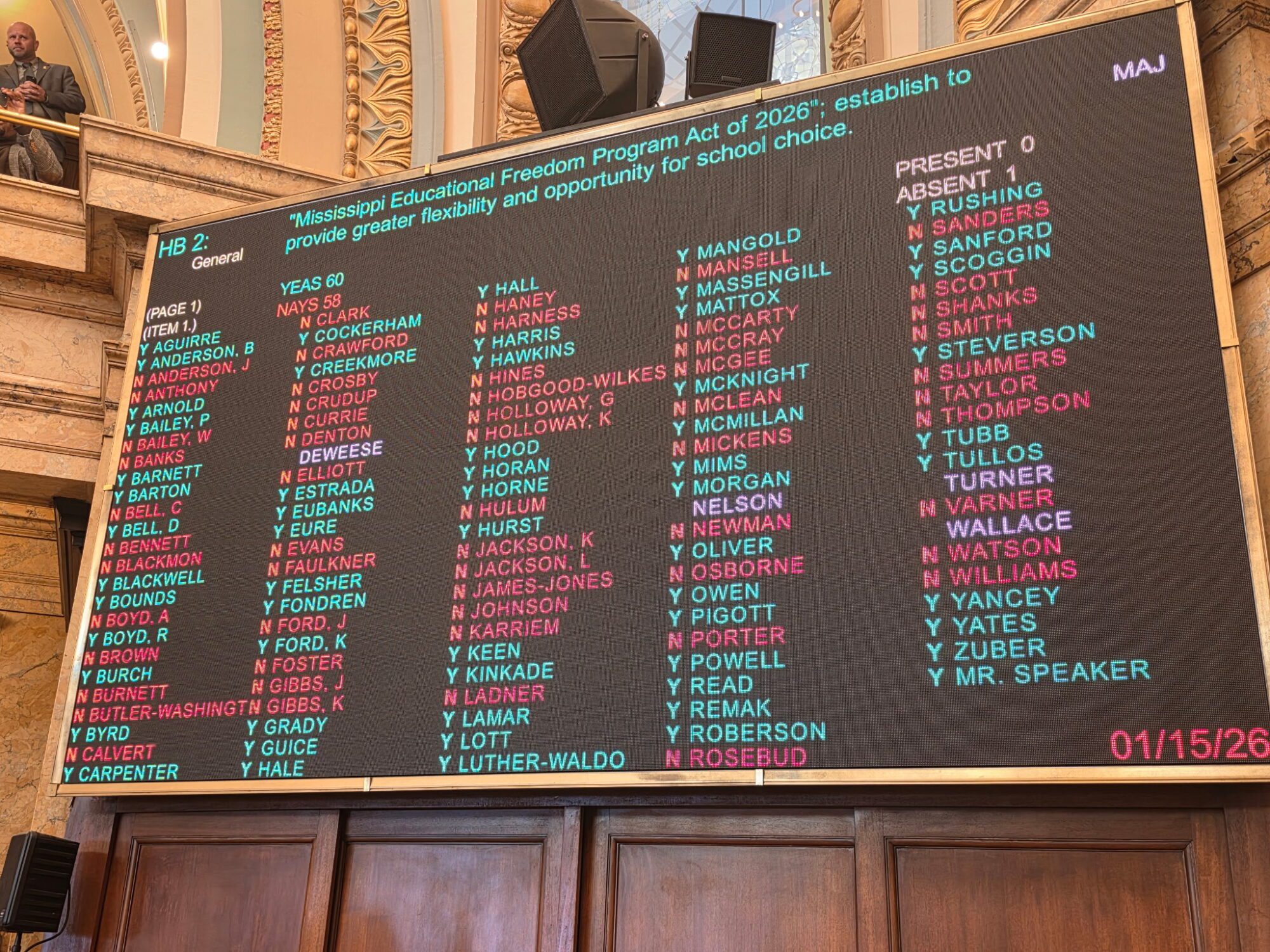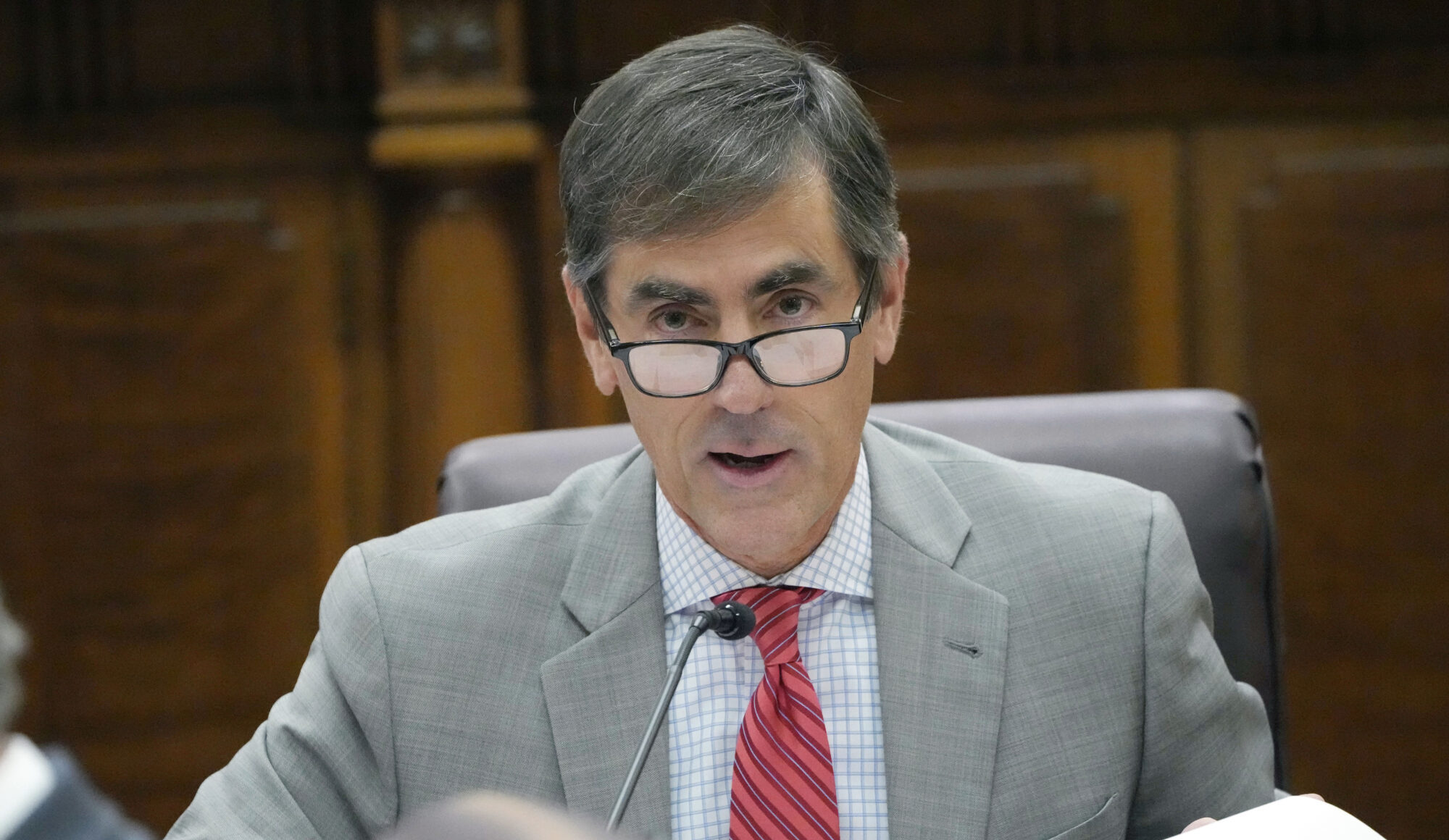
Rep. Robert Johnson
In a letter dated December 3, State Representative Robert Johnson authored a letter to the Speaker of the House of Representatives, Philip Gunn, notifying him of his intent to retire from the Legislature in his current term as of November 30. This occurred just weeks after the 2019 General Election for his seat in District 94, where he ran unopposed. However, he has since said he “cancelled” his retirement letter this week. There is currently no paper trail of that cancellation.
This raises fresh questions about Rep. Johnson’s status as a member of the House of Representatives, with the letter in hand but no paper trail to confirm cancellation, and reignites a controversy about “double dipping” where legislators can concurrently draw state retirement and legislator salary and benefits.
Johnson was elected to the legislature in 1993 in the Senate and has occupied his current House district since 2004. His total years of state service make him eligible for state retirement through PERS except for the fact that he was continuously serving as a legislator and therefore not eligible to draw it under the 90 day “break-in-service” requirement by PERS.
Rep. Johnson Letter of Reti… by yallpolitics on Scribd

This act of retiring in his current term, while still set to serve in 2020, reignites controversy from earlier in 2019 stemming from a policy change that would allow retirees to serve in state legislature while still receiving their retirement benefits. The decision came after an opinion released by the AG on the Public Employees Retirement System of Mississippi (PERS) in November of 2018 which prompted a ruling by PERS to uphold that opinion and allow retired individuals to keep their pension and serve in state government.

Executive Director Ray Higgins in an interview on Tuesday said the PERS Board moved forward with the final adoption of the policy to enable legislators to draw retirement benefits concurrent with legislative service at Tuesday’s meeting after feedback that the IRS was likely to rule in their favor on a requested private letter ruling (PLR). The papers for that policy will soon be filed with the Secretary of State’s office and go into effect after 30 days absent further legislative action.
Higgins said the issue at hand only applies to PERS individuals who are already retired. There is a 90 day “break in service” requirement that would then allow an employee to negotiate returning to work under PERS.
Filing to retire effective November 30 would not put Johnson within the 90 day time frame required. That being said, it is unlikely he would benefit from retiring under the decision at this time. Johnson told Y’all Politics that the initial letter he submitted was pending the decision by PERS and was not to be put into action. He said that once he learned that the ruling would require the break in service, Johnson cancelled the letter.
“I cancelled my retirement letter in light of the new regulations,” said Johnson. He said retirement from his current term was never meant to impact whether or not he would serve in 2020.
“The intent was always to serve,” said Johnson. However, the Speaker of the House is required to file a personnel letter with Clerk’s Office in the House of Representatives if one is received. Since there are no additional letters on file with the Speaker’s office from Rep. Johnson, it begs the question of whether or not he legally could verbally rescind his notice of retirement from the House of Representatives.
Calls were made to PERS to verify whether or not this “verbal void” is effective in terminating the letter, but no one was available for comment.
If the letter cannot be withdrawn verbally, it is unclear what state policy requires in order to void the original letter of intent to retire. This leaves in question when Rep. Johnson could draw on his retirement if he moves forward in serving in 2020.
PERS continues to have nearly $17 billion in unfunded liabilities, and experts question whether having retired state employees-turned legislators essentially “double dip” from taxpayers, by drawing full state retirement benefits while still serving in the state legislature with salary and benefits and still accruing additional retirement benefits like Supplemental Legislative Retirement Program (SLRP) would potentially additional pressure on the state’s already stretched retirement system.
At this time, those who were retired and ran for election in November and were successful will have access to their retirement benefits according to PERS, unless the IRS comes back in disagreement. However, state law has not been changed and does not back up that ruling at this time which could cause conflict.
The genesis of this issue was an opinion letter by Attorney General Jim Hood. He concluded that PERS regulations, that previously prohibited state employees from running for elective office and receiving retirement, contradicted state law. The response by Hood was prompted by a letter from Senator Solie Norwood on the PERS Regulations. The response from Hood is below:
Sen.S.norwood Nov. 29 2019Application of Public Employees Retirement System PERS Regulations by yallpolitics on Scribd
This story is developing.











